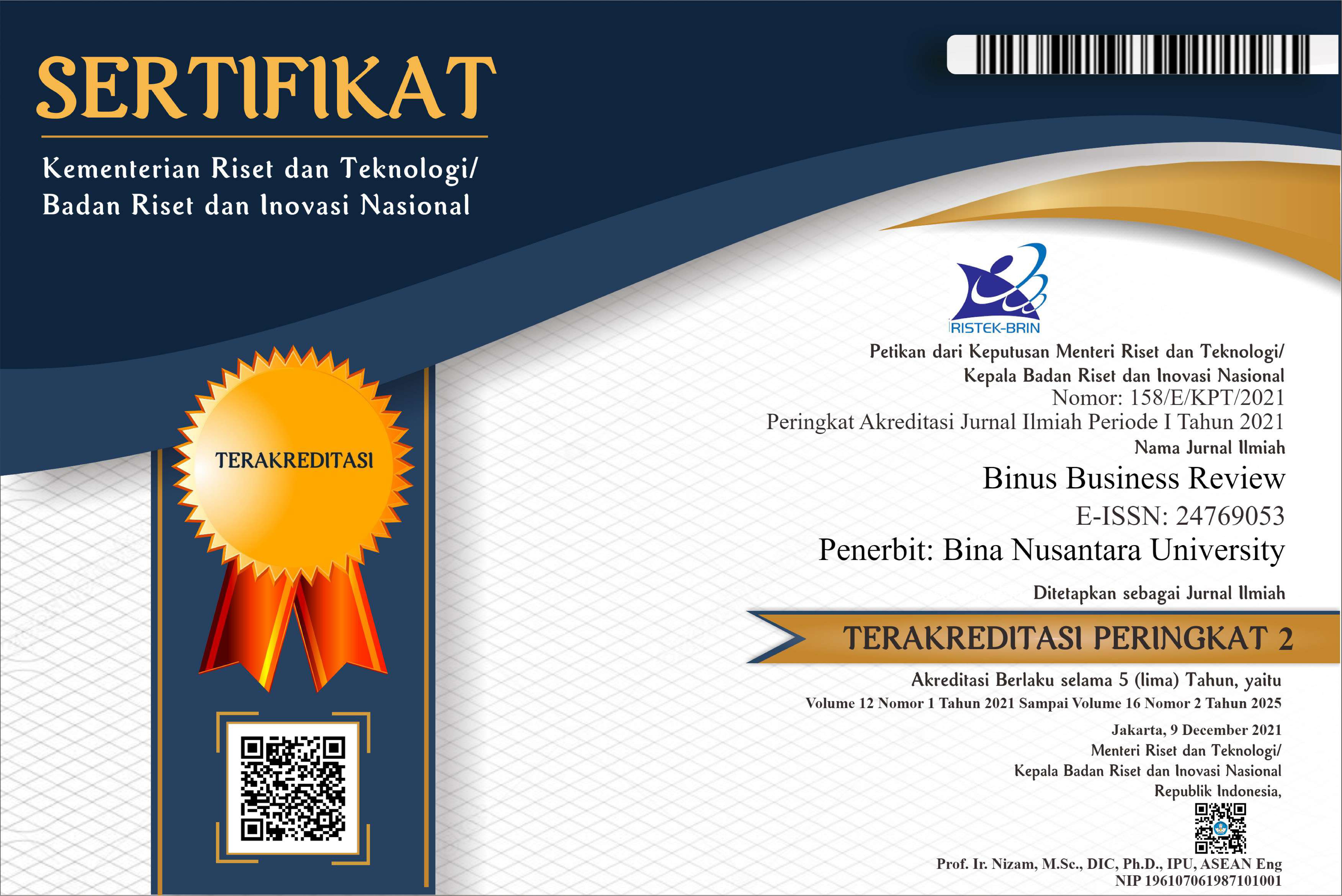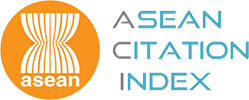Pengaruh Pergantian Auditor dan Kualitas Audit terhadap Opini Audit Going Concern: Studi Empiris Perusahaan Manufaktur di Bursa Efek Indonesia
DOI:
https://doi.org/10.21512/bbr.v4i1.1416Keywords:
auditor switching, audit quality, going concern opinion, opinion shoppingAbstract
This study aims to analyze the effect of auditor switching and audit quality on going concern audit opinion in listed manufacturing companies of the Indonesia Stock Exchange (BEI) in the year 2006 to 2008. Auditor switching was marked by a change to the Public Accountant firms (KAP) who perform the audits or companies used the services of an auditor different than before. Audit quality is proxied by the scale of the BigFour auditors or non-Big Four. Going-concern audit opinion is the explanation given by the auditor if there is any doubt regarding the ability of the company to survive in the future. This study used 70 samples out of 452 populations, using purposive sampling technique in which the main criterion is the sample company received going-concern audit opinion in the year preceding the auditor switched. Results of the study showed that the change of auditors and audit quality is not a factor in determining going concern audit opinion of the company.
Plum Analytics
References
Beattie, V., Goodacre, A. & Masocha, W. (2006). The determinants of auditor changes in the voluntary sector: Evidence from UK charities. Paper dipresentasikan di National Auditing Conference, University of Manchester.
Bursa Efek Indonesia (2010). Laporan Keuangan. http://www.idx.co.id/. Diakses tanggal 16 Januari 2010. Carcello, J. V. & Neal, T. L. (2003). Audit committee characteristics and auditor dismissals following “new” going-concern reports. The Accounting Review, Vol. 78 No. 1: 95-117.
Chow, C. W. & Rice, S. J. (1982). Qualified audit opinions and auditor switching. The Accounting Review, Vol. 57 No. 2: 326-335.
Fanny, M. & Saputra, S. (2005). Opini audit going concern: Kajian berdasarkan model prediksi kebangkrutan, pertumbuhan perusahaan, dan reputasi kantor akuntan publik (studi pada emiten bursa efek Jakarta). Paper dipresentasikan di Simposium Nasional Akuntansi 8: 966-978.
Geiger, M. A., Raghunandan, K. & Rama, D. V. (2003). Recent changes in the association between bankruptcies and prior audit opinions. Auditing: A Journal of Practice and Theory, Vol. 24 No. 1: 21-35.
_____________& Rama, D. V. (2006). Audit firm size and going-concern reporting accuracy. Accounting Horizions, Vol. 20 No. 1: 1-17.
Gomez-Guillamon, A. D. (2003). The usefulness of the audit report in investment and financing decisions. Managerial Auditing Journal, Vol. 18: 549-559.
Griffin, P., Li, A. & Lont, D. (2009). Non-audit fees, audit tenure & auditor independence: evidence from going concern opinions. Working Paper, 02/09. Paper dipresentasikan di the National Meetings of the Accounting and Finance Association of Australia and New Zealand, Adelaide.
Grothe, M. & Weirich, T. R. (2007). Analyzing auditor changes: Lack of disclosure hinders accountability to investors. The CPA Online Journal.
Hudaib, M. & Cooke, T. E. (2002). Qualified audit opinions and auditor switching. Working Paper, 02/05. University of Exeter.
Ikatan Akuntan Indonesia (2009). Standar Akuntansi Keuangan. Jakarta: Salemba Empat.
_______________________ (2006). Standar Profesional Akuntan Publik. Jakarta: Salemba Empat.
Jackson, A. B., Moldrich, M. & Roebuck, P. (2008). Mandatory audit firm rotation and audit quality. Managerial Auditing Journal, Vol. 23 No.5: 420-437.
Lennox, C. S. (2000). Going-concern opinions in failing companies: Auditor dependence and opinion shopping. University of Bristol.
Munawir (2004). Analisa laporan keuangan. Liberty: Yogyakarta.
Mutchler, J. F. (1985). A multivariate analysis of the auditor’s going-concern opinion decision. Journal of Accounting Research, Vol. 23 No. 2: 668-682.
Nashwa, G. (2004). Auditor rotation and the quality of audits. The CPA Journal, Vol. 74 No. 12: 2226.
Nogler, G. E. (2008). Going concern modifications, cpa firm size, and the enron effect. Managerial Auditing Journal, Vol. 23 No. 1: 51-67.
Petronela, T.A. (2004). Pertimbangan going concern perusahaan dalam pemberian opini audit. BALANCE, Vol. 1 No. 1: 46-55.
_____________, Juliana, C. & Mukhlasin (2005). Faktor-faktor yang mempengaruhi pergantian auditor (studi pada perusahaan manufaktur yang terdaftar di bursa efek Jakarta tahun 20012003). Unika Atma Jaya, Jakarta.
Praptitorini, M. D. & Januarti, I. (2007). Analisis pengaruh kualitas audit, debt default dan opinion shopping terhadap penerimaan opini going concern. Paper dipresentasikan di Simposium Nasional Akuntansi 10, Makassar.
Roberts, R. W., Glezen, G. W. & Jones, T. W. (1990). Determinants of auditor change in the public sector. Journal of Accounting Research, Vol. 28 No. 1: 220-228.
Rudyawan, A. P. & Badera, I. D. N. (2009). Opini audit going concern: Kajian berdasarkan model prediksi kebangkrutan, pertumbuhan perusahaan, leverage, dan reputasi auditor. Jurnal Akuntansi dan Bisnis, Vol. 4 No.2.
Ryu, T. G. & Roh, C. (2007). The auditor’s going-concern opinion decision. International Journal of Business and Economics, Vol. 6 No. 2: 89-101.
Santosa, A. F., & Wedari, L. K. (2007). Analisis faktor yang mempengaruhi kecenderungan penerimaan opini audit going concern. JAAI, Vol. 11 No. 2: 141-158.
Sarwono, Jonathan (2009). Statistik itu mudah: Panduan lengkap untuk belajar komputasi statistik menggunakan spss 16. Yogyakarta: Andi.
SDA Bocconi (2002). The impact of mandatory audit rotation on audit quality and on audit pricing: The case of italy. Academic Research.
Solikah, B. (2007). Pengaruh kondisi keuangan perusahaan, pertumbuhan perusahaan, dan opini audit tahun sebelumnya terhadap opini audit going concern. Tesis 1, Universitas Negeri Semarang, Semarang.
Tucker, R. R., Matsumura, E. M. & Subramanyam, K. R. (2003). Going-concern judgements: an experimental test of self-fulfilling prophecy and forecast accuracy. Journal of Accounting and Public Policy: 33.
Usman, Husaini (2003). Pengantar statistika. Jakarta: Bumi Aksara.
Downloads
Published
How to Cite
Issue
Section
License
Authors who publish with this journal agree to the following terms:
a. Authors retain copyright and grant the journal right of first publication with the work simultaneously licensed under a Creative Commons Attribution License - Share Alike that allows others to share the work with an acknowledgment of the work's authorship and initial publication in this journal.
b. Authors are able to enter into separate, additional contractual arrangements for the non-exclusive distribution of the journal's published version of the work (e.g., post it to an institutional repository or publish it in a book), with an acknowledgment of its initial publication in this journal.
c. Authors are permitted and encouraged to post their work online (e.g., in institutional repositories or on their website) prior to and during the submission process, as it can lead to productive exchanges, as well as earlier and greater citation of published work.
USER RIGHTS
All articles published Open Access will be immediately and permanently free for everyone to read and download. We are continuously working with our author communities to select the best choice of license options, currently being defined for this journal as follows: Creative Commons Attribution-Share Alike (CC BY-SA)




















